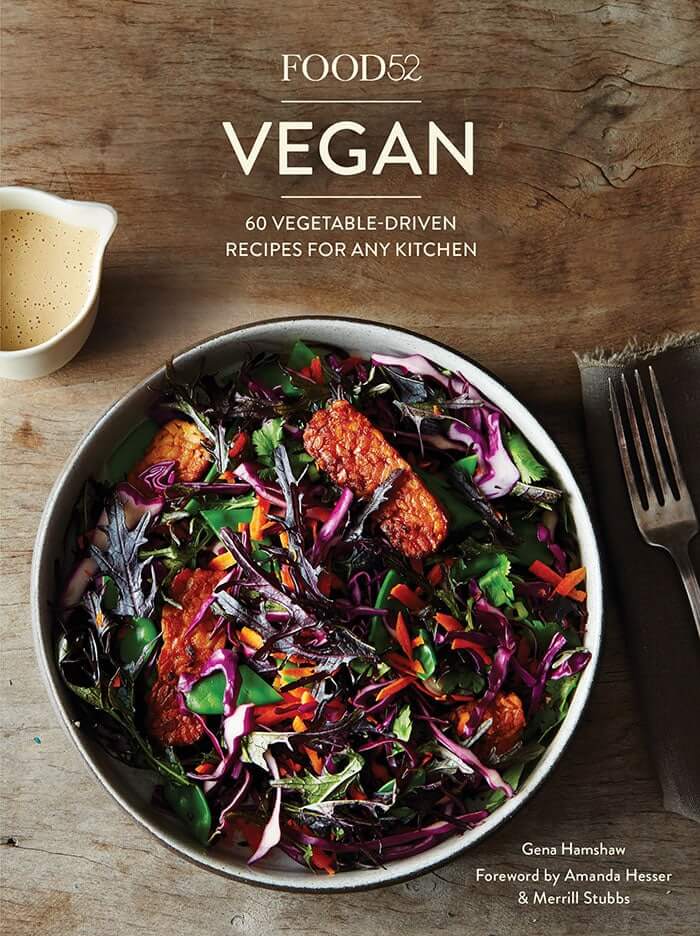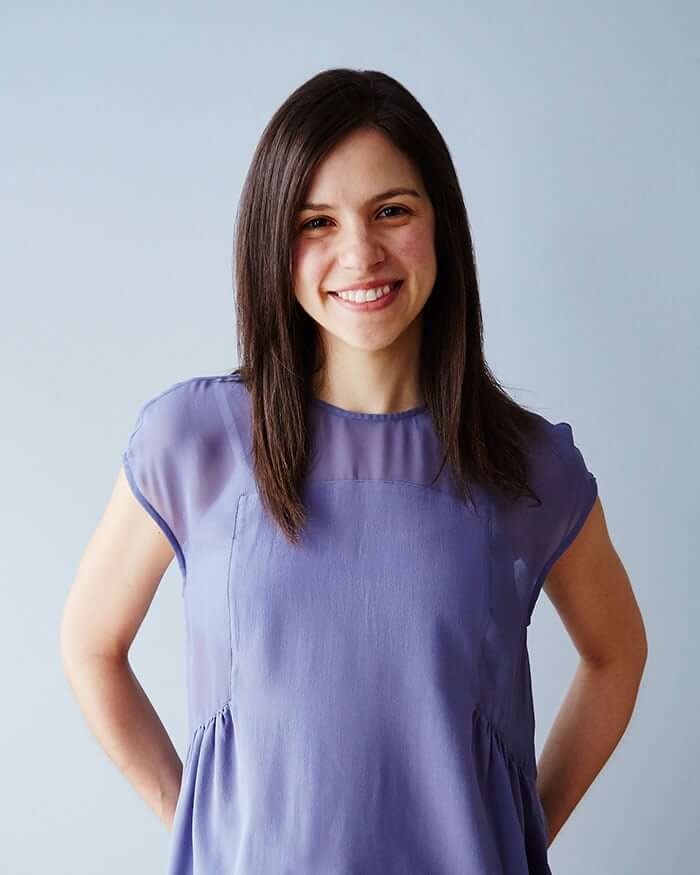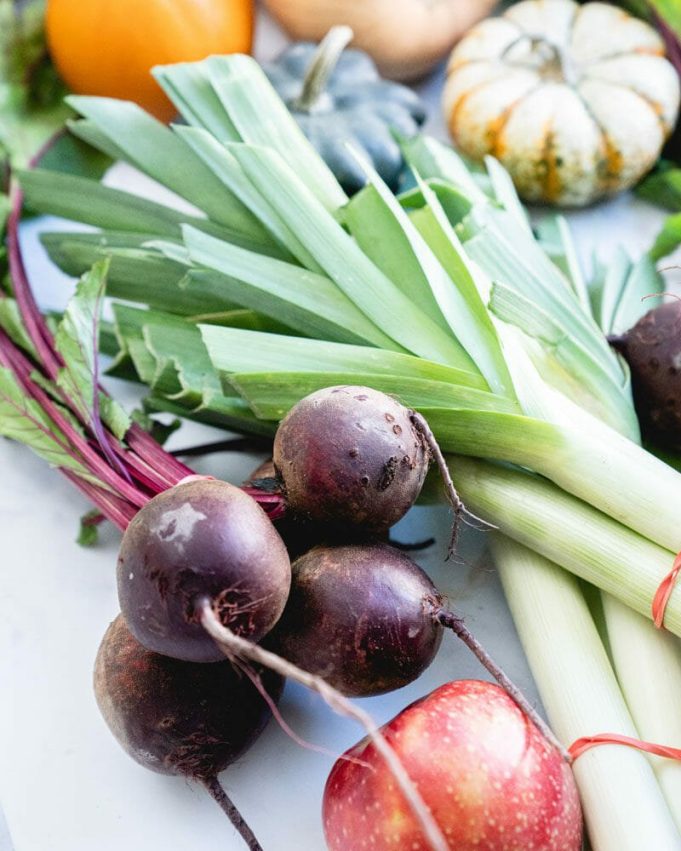Do you want to eat in such a way that food is both a source of pleasure and a source of nourishment? Here are some tips for a balanced diet.
Gena Hamshaw is a nutritionist and dietetics student and the face behind The Full Helping, where she shares nutritious vegan recipes and meal ideas. We love Gena’s food (we’re still drooling over her Instagram feed). But what’s even more impressive is her candidness about her past battles with anorexia and orthorexia.
We asked Gena if she would accept her experience with us and she agreed! She is the author of two vegan cookbooks, the most recent of which is Food52 Vegan. The book is full of colorful vegetable recipes that are as beautiful as they are delicious. Gena’s also offered to share this vegan chocolate cake recipe from Food52 Vegan that fits perfectly with the theme of balanced eating. Kudos to Gena for being authentic and sharing her beautiful work!
Related: Healthy Baked Sweet Potatoes with Moroccan Lentils from Gena’s Power Plates cookbook
(Image credit: James Ransom)

5 tips for a balanced diet
My name is Genea. I’m a food blogger, vegan cookbook author, nutritionist and future RD. I am also recovering from thirteen years of recurrent anorexia and orthorexia.
I usually say I’m “recovered,” not recovered. In many ways it is true: I have gained weight and have been physically healthy for many years. I no longer engage in disordered eating habits, no longer have “fear food” or try to exercise control over my life by restricting or manipulating food. I love food – it’s probably my greatest passion – and I love to eat.
But as I was writing this article, I couldn’t help but think that maybe the word “recovery” is a little too neat and tidy to describe the before and after of eating disorders. . In many ways we are still recovering from the struggle even as the healing takes us to places where we feel more freedom, joy and peace than ever before. I think part of being committed to the ongoing journey of recovery is understanding that balance doesn’t just happen, it takes effort and awareness, at least for some of us.
What do I mean by “balanced”? I mean a way of eating where food is both a source of pleasure and a source of nourishment. I mean having fun when it suits him, but also understanding how to preserve the pleasure of gluttony by reserving it for privileged moments. I mean, eat until you’re completely full, but not past the comfort point. In other words, all that “moderation” stuff we hear so much about.
I’m not going to pretend that balance or moderation is easy for those of us who have extreme histories with food. But here are some of the mindful eating strategies that have helped me maintain balance in my own life.

1. Punishment is forbidden.
I had a hard time grasping the idea of ”balance” because I couldn’t quite distinguish it from the elaborate system of checks and balances that had governed my relationship with food in the past. For so many years, my response to indulgence has been quick and immediate self-punishment. If I allowed myself to enjoy a meal at a restaurant, I would inevitably try to starve myself by substituting green juice for breakfast the next day. If I tasted too much sweetness one afternoon, I’d swear off all sugar for a month. My attempts to “compensate” for the food choices I was dissatisfied with only pushed me to greater and greater extremes.
One of the cornerstones of my recovery was letting go of self-punishment. I don’t starve to make up for a slightly greedy meal, and I don’t drag myself to the gym for hours when I’m scared of something I ate earlier in the day. I just remember that a balanced diet is a continuum and that leaves me room for indulgence and simpler meals. I can’t help but feel guilty at times, but I can help but respond to that guilt through deprivation and a lack of self-care.
I don’t starve to make up for a slightly greedy meal, and I don’t drag myself to the gym for hours when I’m scared of something I ate earlier in the day. All I remember is that my diet is a continuum, leaving room for indulgence and simpler meals.
2. Food is sustenance, not control.
From the time I hit puberty until I fully devoted myself to recovery, I saw the act of eating solely as a way to manipulate and control my physical form. Oddly enough, my looks mattered a lot less to me than feeling like I’d learned to control my appetite. For me it was the ultimate power trip, a testament to my own strength.
Today I see that my anorexia was the opposite of empowerment. In fact, it took away from me all the things that made me truly strong: empathy, passion, excitement, human connection, intellectual engagement, and an appetite for life and food. I no longer view my meals and food choices as an attempt to control anything (much less attached to the idea of ”control” in general). Instead, I see food as an area where I can be a good listener and take care of my body. I eat foods that nourish me both physically and emotionally, and I recognize that healthy eating begins with a basic understanding of one’s appetite.
3. Balanced meals at regular intervals.
It’s all well and good embracing the idea of self-care and self-care. But in my experience, positive, selfish thoughts are not enough to ensure a balanced diet in the long term. For me, the process was half emotional/spiritual and half practical. I mentally prioritize self-care but also make sure to eat truly balanced meals on a regular basis. That means getting a good balance of protein, fat and carbs on every plate, not skipping meals and making sure I get a wide variety of nutritious foods every day. I insist on these guidelines with my clients for a balanced diet and in my recipes.
See also: Plant-based diet for beginners
4. Only sustainable habits.
I come from a long and colorful history of extreme diets, fad diets, elimination diets, austerity diets, and other forms of hyper-restrictive eating. That’s why I live by a diet rule of thumb today: “If I can’t keep this type of diet comfortable and healthy forever, then I’m not interested.”
This immediately disqualifies me from most cleanses, detoxes, elimination diets and 3 week nutrition challenges and I’m fine with that. That said, I’m not striving to eliminate sugar from my diet entirely (could I live without vegan cookies forever? No), I’m not completely swearing by processed foods (I practically couldn’t stomach that for the rest of my life), and I walk Don’t be too harsh and quick on ingredients like oils or sweeteners, even though I’m more picky and temperate with them than I am with other foods. I spent many years struggling and struggling with food; At this point in my life, the goal is to be conscious but comfortable.
Food used to be healthy or unhealthy, clean or dirty. The food choices were immediately categorized as good or bad. There was no middle ground, no gray area, no ability to nuance.
5. Perspective and resilience.
Food used to be healthy or unhealthy, clean or dirty. The food choices were immediately categorized as good or bad. There was no middle ground, no gray area, no ability to nuance. Today I can see that no single meal, day, or even week of eating is that important in the overall scheme of things. I know it’s a cliche to say, but it’s really the big picture that counts.
So I don’t freak out when my habits get messed up because life is busy, it’s the holiday season, or I’m feeling particularly stressed. If I’ve eaten too much or gotten a little lost eating, I try not to panic. Instead, I cultivate a sense of resilience and humor. I try to suspend judgment and fear. I’m waiting for my usual habits to return. And with enough patience and self-acceptance, they always do.
For Gena’s vegan chocolate cake recipe, go to: Decadent vegan chocolate cake




